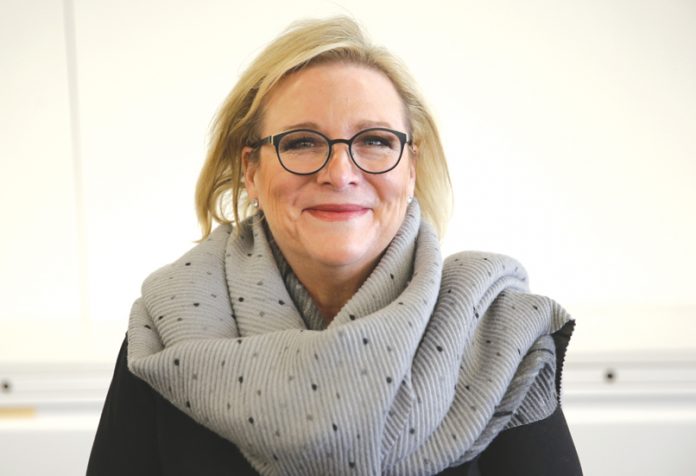When Melissa Howell turned 50 a few years ago, she celebrated the milestone binge-watching chick flicks with one of her best girlfriends. It was a rite of passage, a turning of the proverbial page into mid-life.
But after her celebratory weekend, it was back to reality with a trip to her physician.
“It wasn’t too long after my 50th birthday when I made an appointment with my doctor,” Howell said. “I knew at that time 50 was the recommended age for a colon screening, and I went in not expecting him to find much. Other health issues in the past had taught me to be proactive and not wait. Through the years I learned to not procrastinate when it comes to my health.”
Howell’s colonoscopy revealed numerous polyps, and about seven were biopsied.
“One of those came back malignant,” she said. “The good news was that he found it extremely early and was able to remove it. I had no follow up, and no radiation or chemotherapy was necessary. When my doctor called to give me the news, he said, ‘Someone saved your bucket by convincing you to come see me.’ But the truth is, no one convinced me. I just did it because it needed to be done. I’m glad I did. I hope others follow American Cancer Society guidelines, talk to their physician and get screened, because it could save their life.”
Colorectal cancer is one of the leading causes of death in the United States, according to statistics from the American Cancer Society. And Oklahoma ranks as one of the highest states in the nation regarding colorectal cancer and death rates.
“Just last year, more than 19,000 Oklahomans were diagnosed with cancer,” said Janet Pulliam, Senior Manager for Hospital Systems for the Oklahoma American Cancer Society. “This year we expect that number to rise to more than 20,500 people. More than 1,800 of those will be diagnosed with colorectal cancer, and 760 are expected to die from colorectal cancer. The real tragedy is many of these cancer cases and deaths could have been prevented if more people were screened for colorectal cancer.”
The five-year survival rate is 90 percent for those who are screened early, Pulliam said. And in fact, many live much longer than that or are cured.
“Only about 39 percent of cases are diagnosed early,” she added. “If the cancer is not detected until a later stage, the five-year survival rate drops to 14 percent. Oklahoma ranks last in screening. At OKACS we knew that to make an impact in our statewide screening, we would have to do something differently. So late last year we pulled together key stakeholders from our health care systems to form the Central Oklahoma Colorectal Taskforce. We are working together to identify gaps in care, methods of filling those gaps, and available resources. It will take us all to raise our screening rates and reduce incidences of colorectal cancer.”
The American Cancer Society’s guidelines traditionally recommended 50 as the age to begin colorectal cancer screening. However, that was lowered to 45 last year for people of average risk for colorectal cancer.
“Screening for colorectal cancer is an essential tool to prevent and detect colon cancer earlier,” said Dr. Christian Ellis, a surgical oncologist at Mercy Hospital in Oklahoma City. “If a person has a relative who has been diagnosed with colorectal cancer or advance polyps, they should begin screening even earlier at age 40, or 10 years before the earliest diagnosis of colorectal cancer in their relative.”
A colonoscopy is the gold standard for screening, Ellis said, but other less-invasive tests are available now that can be done in the privacy of your own home. The best way to determine the right test is to talk to your physician.
“Colorectal cancer is a preventable disease, but only if there is early detection and treatment,” he said. “I want to encourage you to exercise, eat nutritional foods, maintain a healthy weight and of course avoid tobacco and other substances that can increase your risk for cancer. As a board member of the Oklahoma American Cancer Society, I speak for its members by expressing our desire for you and your family to live a healthy and cancer-free life.”
March is Colorectal Cancer Awareness Month, and the American Cancer Society is partnering with other organizations to increase screenings in Oklahoma and nationwide. OKACS, the National Colorectal Cancer Roundtable, Fight Colorectal Cancer, Mayo Clinic, Exact Sciences, and UPS are launching the next campaign to reach an 80 percent colorectal cancer screening rate nationwide. “80% in Every Community” is an initiative which aims to substantially reduce colorectal cancer as a major public health problem. The initiative seeks to build on and grow the tremendous success of the “80% by 2018” initiative.
Learn more about the initiative and screening guidelines at www.cancer.org/colon













